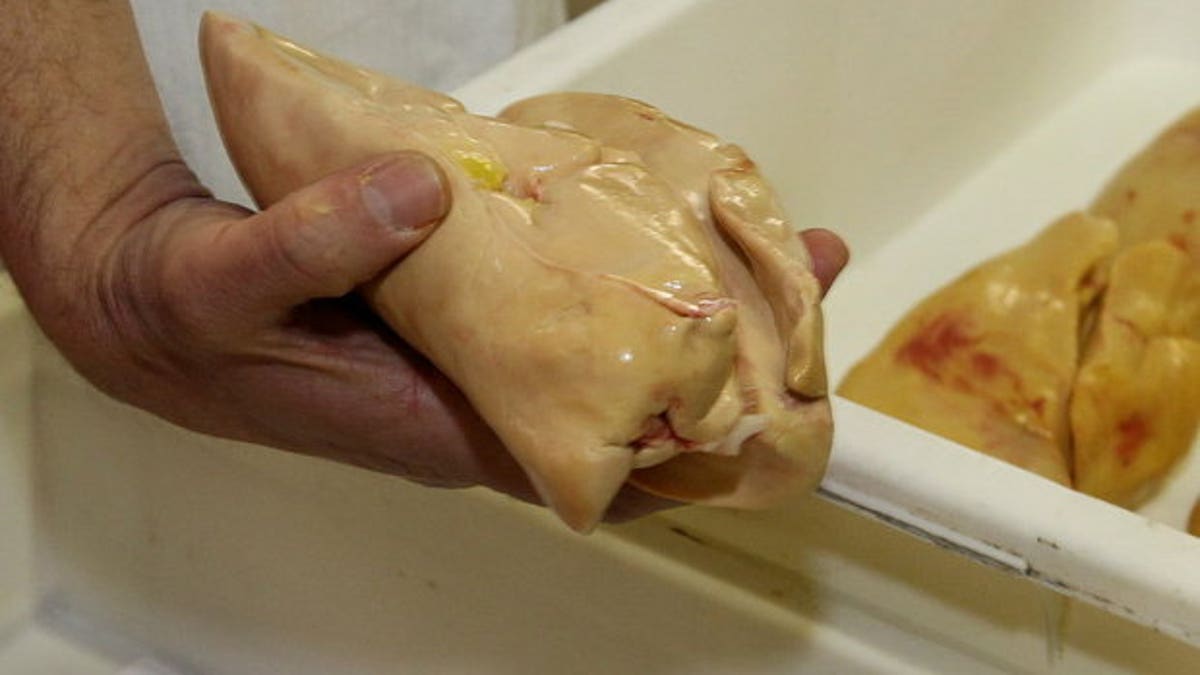
A chef displays a lobe of foie gras. Farmers in southwestern France have been banned from producing the delicacy for three months over concerns of avian flu. (AP)
Bad news for French farmers. But good news if you're duck and goose. Your projected life span has been extended for three months – if you survive the bird flu.
On Wednesday, French authorities halted the production of foie gras – fattened duck or goose liver – until August throughout southwestern France as the region braces for a particularly virulent strain of bird flu, which was detected on an area farm late last year.
The effect of the ban will be felt worldwide, as France supplies an estimated 75 percent of the world’s foie gras-- 70 percent of which comes from the affected area. Exports of the delicacy amounted to 5,000 tons in 2014, The Local reported.
In this case, what's good for the goose is also good for the gander – but it will be tough on the breeders. There will be 9 million fewer ducks on the market this year, a farmer told Le Figaro, meaning the price for consumers “will have to go upwards.”
Foie gras is produced from the livers of ducks and geese that are force-fed to get fat, a practice that is opposed by animal-rights activists for what they say is its cruelty. Force-feeding has been banned in several countries, including the U.K., Germany, Italy and Israel.
In 2004, California passed a law that barred the sale of the delicacy, including in restaurants. The law was in effect from 2012 until January 2015, when a federal judge ruled it was unconstitutional.
But foie gras remains a popular delicacy in France, which will feel the effects of the ban immediately.
“This interruption to our business will cause cash flow problems, additional wage costs linked to the temporary unemployment of around 4,000 workers, and fixed costs that will have to be paid despite us not having any income," Marie Pierre Pé, spokesperson for the producers' federation, Cifog, told Le Figaro.
The French minister of agriculture said the government would compensate the breeders for their estimated $150,000 loss.
The H5N1 strain of bird flu was identified at a chicken farm in Dordogne in November. The strain is highly lethal to birds, but humans rarely contract the virus unless they are in very close contact with a live bird that has the disease.
But when people do get sickened by H5N1, it is fatal in about 60 percent of cases, according to the World Health Organization.
